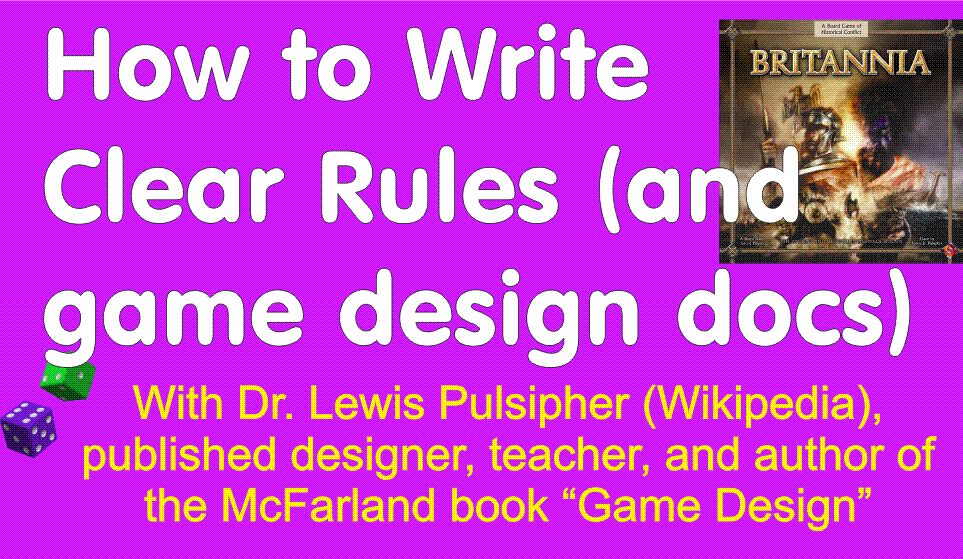I have been thinking about what characterizes the broader market in games, both tabletop and video. I haven't come to any generalized theory yet (if I ever will), but I have some observations.
"Twitch games" are games requiring a player to move and react very quickly. This is the most common form of hard core video game, as epitomized by shooters, but can also be seen in many casual games such as Tetris.
The 21st century is the world of Instant Gratification, of "oh shiny", of the "Easy Button", of myriad distractions and encouragements to "just do it" rather than think about it. It's the world of "listen to your feelings, Luke", where something other than logic is preferred (e.g. "The Force" is better than any computer). K-12 education in most places in the USA consists of memorization of material to pass multiple choice tests. Students aren't encouraged to think. ("Life is an essay test, not multiple choice", but that's not the trend in education.) Twitch games are far more popular than strategy games because so many people in the modern world are unwilling to shift their brain out of first gear. I am talking about general points of view, not necessarily what YOU are like, of course. We don't need to concern ourselves with whether this is good or bad, it is what it is.
In the past decades we've "dumbed down" the twitch games to reach a broader market, as typical games are easier than in the past, repleat with such features as auto-aim and auto-save. I'm *not* saying this is bad, in fact I think we should go further in story-driven games so that those who want to enjoy the story without the work of playing the game can do so, while those who enjoy challenge can do so. A game can be hard for those who want it to be hard, and can provide auto-pilot for those who just want to enjoy the story.
But the "dumbing down" also means there is even more of a market now for "twitch games" than for thinking games. Kids especially are far more willing to learn the highly repetitive hand movements and the eye coordination, than to apply a lot of brainpower to a game.
There may have been a time--or may not--when the population as a whole were more willing to think than to twitch, but if so those days are long gone.
Not surprisingly, many of the people who like thinking games play tabletop games more than video games. The proportion of "twitch" is much higher in video games (of course), the proportion of thinking games much higher in tabletop because there are few ways to make them games of reaction and movement, and because people are more formidable and resourceful opponents than the computer.
Social networking games on Facebook are an extreme, in a sense a reversion to the original video games that required very little brainpower. Most if not all social networking games are deliberately designed to present very simple puzzles each day (often repetitive puzzles) that any normal person can solve without frustration, if they choose to do so. Nor are they actually social, as almost all of them can be played solitaire; other people are not required.
As a lifelong "strategy gamer" and one who enjoys playing games with other people, I find all of this disappointing, but game designers must deal with it.
Wednesday, January 12, 2011
Sunday, January 9, 2011
Beginners "design" what they want to play
If you ask beginners to "design" a video game by writing a formal description (a game treatment), what you get is a vague description of the "really cool" game they'd like to *play*, usually overflowing with superlatives like "great story" and "great graphics". There's no recognition of practical limitations. It is "pie in the sky". Nor is there any element of real game design, which is about setting constraints and resulting problems, solving those problems, then solving all the problems that arise from the inevitable weaknesses of those initial solutions, and so on. There are no details, only vague ideas, and I (and many others) have already described how little value there is in ideas.
Subscribe to:
Comments (Atom)
"Always do right--this will gratify some and astonish the rest."Mark Twain
"A designer knows he has achieved perfection not when there is nothing left to add, but when there is nothing left to take away." Antoine de Saint-Exup'ery
"Not everything that can be counted counts, and not everything that counts can be counted." Albert Einstein
"Make everything as simple as possible, but not simpler." Albert Einstein




